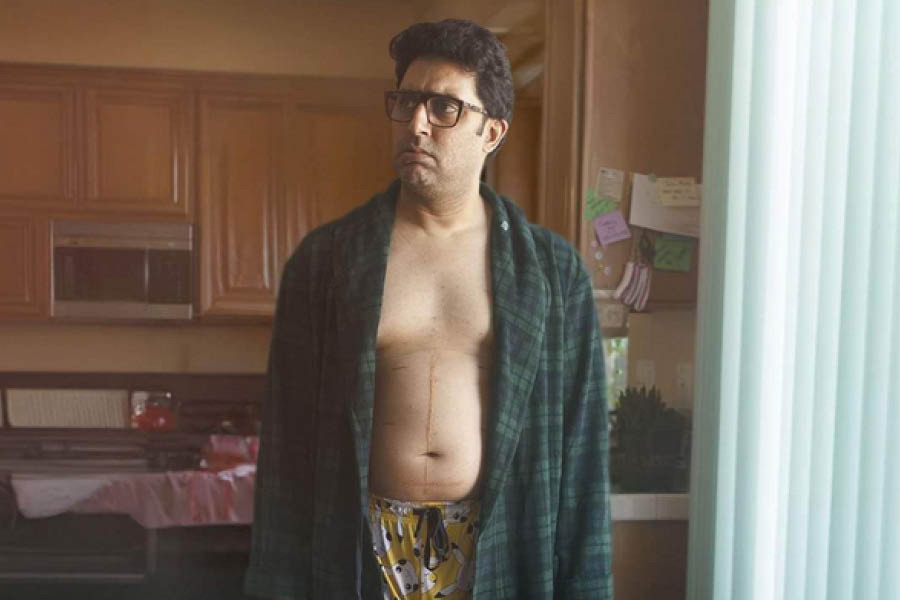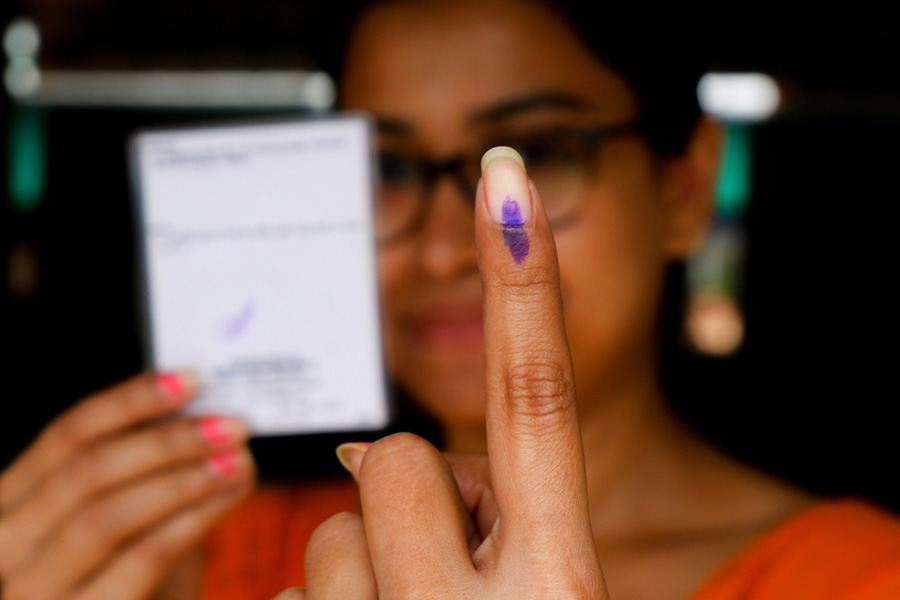Shoojit Sircar’s I Want to Talk is an honest and tender examination of a man’s resilience in the face of a life-threatening illness and his quiet desperation to live.
Inspired from real-life events, the film follows a successful marketing professional whose voice — once his most prized asset — becomes the casualty of laryngeal cancer. Arjun Sen — played by Abhishek Bachchan — is introduced as a California-based charismatic advertising executive and single parent whose days revolve around crafting persuasive campaigns and delivering sharp one-liners. What slams the brakes on this fast, upwardly mobile life is a cancer diagnosis that gives Arjun only 100 days to live. Incredulous, Arjun goes for a second opinion, from Dr Jayanta Deb (Jayant Kripalani) who recommends a laryngeal surgery. Thus begins a long, arduous journey involving a series of surgeries and Arjun’s faltering determination to survive.
Shoojit Sircar, who has co-written the screenplay with Ritesh Shah, skips the clichés of presenting terminal illness to portray Arjun’s pain — physical, emotional and the existential crisis — with clinical precision. In I Want to Talk, cancer patient Arjun is neither an object of pity nor of heroism. His hospital visits become mundane, routine events. The “lucky” stroll bag that he carries to the hospital during surgeries becomes symbolic of his ordeal. Shorn of sentimentality, the film leans towards taking a close look at human frailty and endurance.
Abhishek Bachchan has to do the heavy-lifting of course and he steps up to the job. His Arjun Sen is a dignified man who refuses to let the illness define him, using humour both as a shield and a coping mechanism. There’s a heartbreaking moment when Arjun jokes about having “only five percent of his stomach left”. The change in Abhishek’s physicality, reflecting the toll that repeated surgeries is taking on the character’s body, adds depth to his portrayal, which easily is one of his career-best.
As Arjun’s teenage daughter Reya, Ahilya Bamroo does a great job too. This adolescent is not only devastated by her father’s illness but is also coping with her parents’ divorce. Though initially resentful of Arjun’s stoic façade and physical absence during his hospital stays, Reya’s growing awareness of her father’s suffering becomes a lens through which the audience understands the complexities of caregiving and the emotional distance that marked their relationship in her growing up years. Her demand to see the scars her father hides is as much a cry for intimacy as it is an expression of teenage frustration.
Johnny Lever, as Arjun’s handyman and chauffeur, brings moments of levity to the story, his understated humour offering respite from the film’s heavier themes. And Jayant Kripalani shines as the brusque but compassionate surgeon treating Arjun.
Stylistically, I Want to Talk is a throwback to Sircar’s earlier works, blending the emotional wrangling of Piku with the melancholy of October. The father-daughter dynamic between Arjun and Reya would remind you of the bond between Piku and Bhaskar Banerjee. The setting of I Want to Talk — hospital corridors and operating theatres — evokes the haunting stillness of October. Yet, I Want to Talk stands on its own with an almost documentary-like realism.











